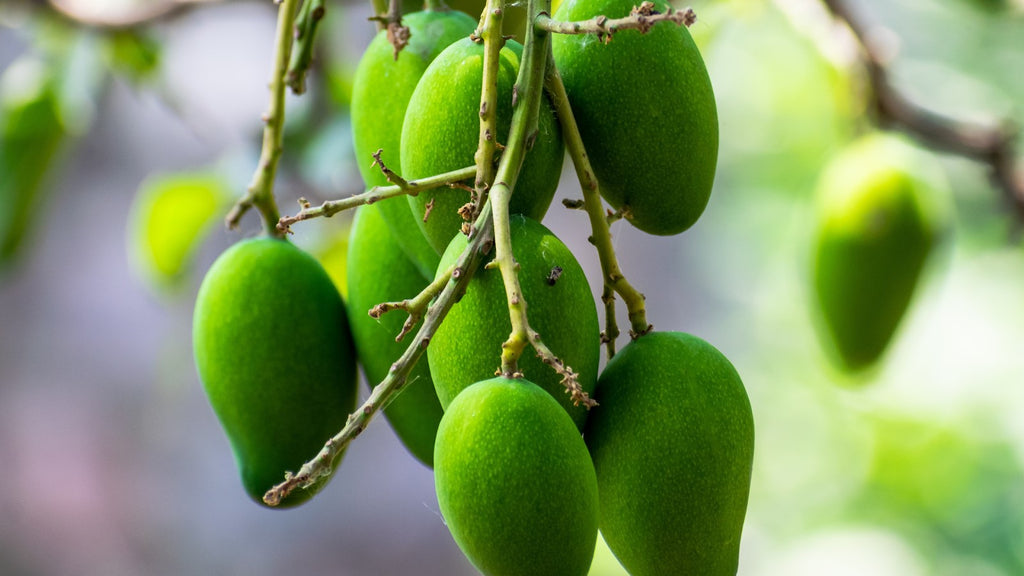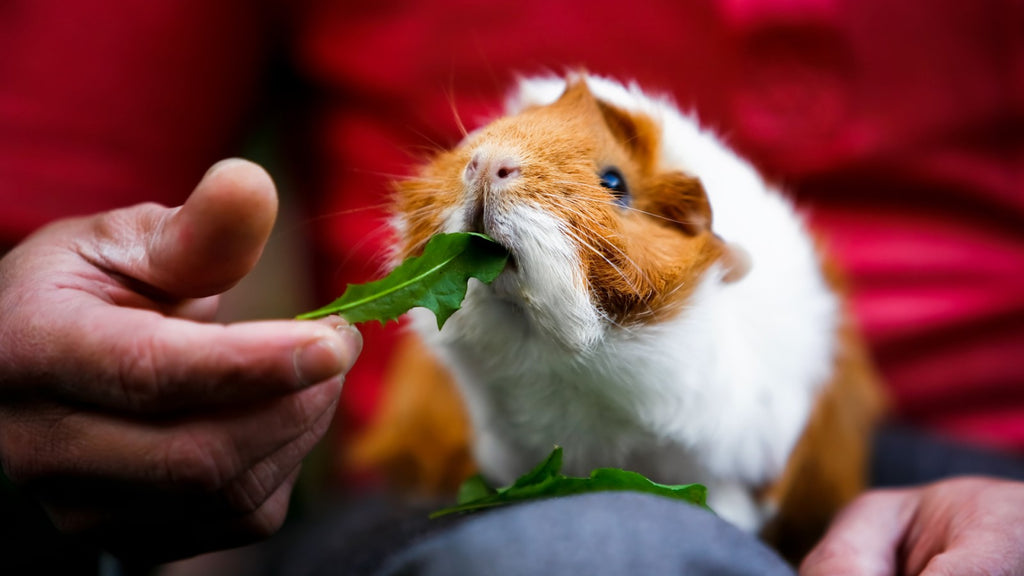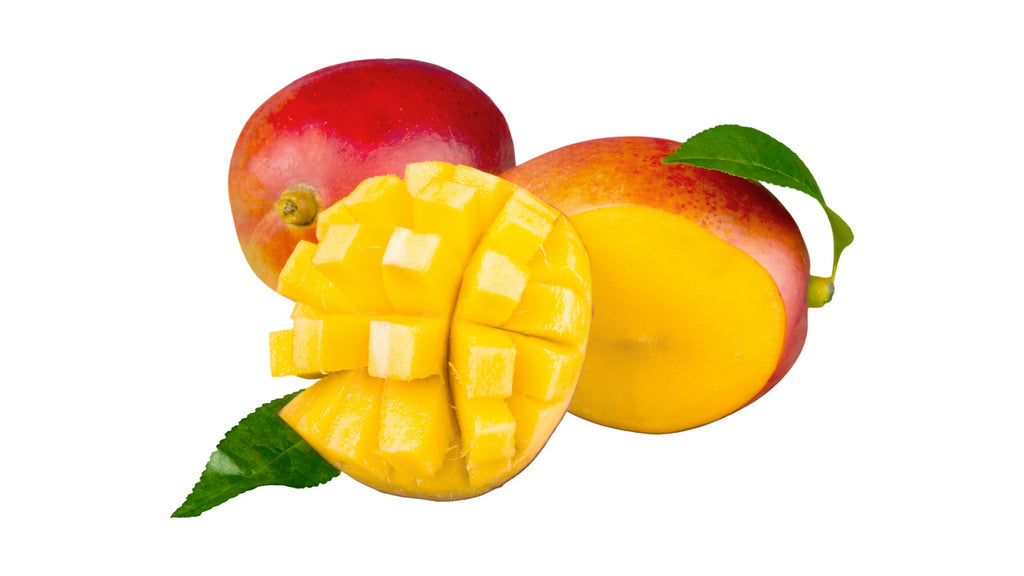
The king of fruit, also called the Mango fruit is one of the most popular, nutritionally rich fruits with unique flavor, fragrance, taste, and health-promoting qualities, making it numero-uno among new functional foods, often labeled as super fruits. Botanically, this exotic fruit belongs within the family of Anacardiaceae, a family that also includes numerous species of tropical-fruiting trees in the flowering plants such as cashew, pistachio, etc
Mango comes in different shapes and sizes depending upon cultivar types. Internally, its flesh (mesocarp) is juicy, orange-yellow with numerous soft fibrils radiating from its centrally placed flat, oval-shaped stone. Its flavor is pleasant and rich and tastes sweet with mild tartness. High-quality mango fruit should feature no or very less fiber content and minimal tartness. Can guinea pigs eat Mango? Can mango nutritionally guinea pigs? Answers to this and all other questions will be answered in this article.
It
Can Guinea Pigs Eat Mango
Yes, Guinea pigs can eat mangoes, but only in moderation, therefore, mangoes should not be an essential part of their diet. Mangoes should be fed more like an occasional treat to them because it contains a high proportion of sugar, and this is terrible for your guinea pigs. You can feed them mangoes sometimes, but it should not at any cost be the only part of the diet instead it should be served with other diets. A guinea pig needs a well-diet to lead a healthy and long life. Hay is one of the essential parts of any guinea pig diet, and it should consist of 80% of their total intake.

In What Proportion Should Mango Be Served To Guinea Pigs
Mango is one of the many fruits that guinea pigs love and this is because it is high in vitamins A and C. Nonetheless, no matter how crazy about it they are, guinea pigs should be limited to a slice of mango once or twice a week, at best. More frequent mango consumption can lead to adverse issues related to the high sugar content like obesity.
Also, Remember to remove the pit from the mango and peel off the skin, as these parts of the mango should not be fed to your guinea pig. The skin needs to be peeled as often covered with pesticides and other chemicals, plus its texture is very hard for a guinea pig to swallow.
What are the health benefits of feeding Mango to guinea pigs
Mango is known to be one of the most nutritious fruits you can provide for your guinea pigs, and some of those nutrients and its benefits are listed below
Rich in Vitamin A and flavonoids
Mango fruit is an excellent source of Vitamin-A and flavonoids like beta-carotene, conjunctuon of these compounds have been known to have antioxidant properties and are essential for vision. Vitamin A helps to improve the immune system of guna, and they are also required for maintaining healthy mucus and skin. Consumption of natural fruits rich in carotenes is known to protect from lung and oral cavity cancers.
Enrich in potassium
Fresh mango is a good source of potassium, and it is an important component of cells and body fluids that helps control heart rate and optimum blood pressure. They also join with another nutrient like magnesium to help loosen up the blood vessels in the heart for the proper functioning of the body
High in Vitamins
It is also a very good source of vitamin B6 (pyridoxine), vitamin C, and vitamin E. Consumption of foods rich in vitamin C helps the body develop resistance against scurvy and some inflammation disease by strengthening the immune system. Vitamin B-6 or pyridoxine is required for hormone production within the brain. It also controls homocysteine levels within the blood, which may otherwise be harmful to blood vessels resulting in coronary artery disease.
Rich in fiber
Mango contains some enzymes which are useful in breaking down some large food molecules into smaller food particles for easy digestion. In short, fiber aids in digestion, and they also work with a sufficient amount of water to hasten the process. You will also find them working with another element to reduce weight loss by increasing the rate of satiety in them.
Contain Copper
Mango composes of moderate amounts of copper. Copper is a co-factor for many vital enzymes, including cytochrome c-oxidase and superoxide dismutase (other minerals that function as co-factors for this enzyme are manganese and zinc). Copper is also required for the production of red blood cells.

Possible health risks of feeding mango to guinea pigs
There will always be a disadvantage to feeding good food, especially fruit to your cavies. This is because most fruits contain a lot of essential nutrients, and these nutrients can lead to detrimental health effects if it is overfed. This article has highlighted the possible health risks that may arise from too much feeding mango fruits to your guinea pigs.
Kidney or bladder stones
Mango fruits are enriched with a decent amount of calcium content, and when it is fed in the correct portion it may not lead to much damage. However, if you decide to feed them in high proportions it may lead to the formation of small stones that lead to the blockage of water and other essential nutrients in their body system.
Digestive problems
It has been stated above that mango fruit is enriched with a high proportion of sugar content, and this may lead to a lot of damage like diabetes and bloatedness when it is fed to your guinea pigs
Allergy reaction
Some guinea pigs tend to have allergic reactions to mango fruit, especially if they are eating it for the first time. This is why your cavies should be monitored whenever they are being given new food to them
Conclusion
Yes, guinea pigs can eat mango, but it should only be in moderation. This is because of the high amount of sugar content that may be found in them. Guinea pigs are pets with sensitive stomachs and the body systems can not synthesize enzymes that can break down sugar in the body hence, sugar is consumed by them in small proportions. However, there are also other benefits related to feeding mango to guinea pigs, and some have been listed above
